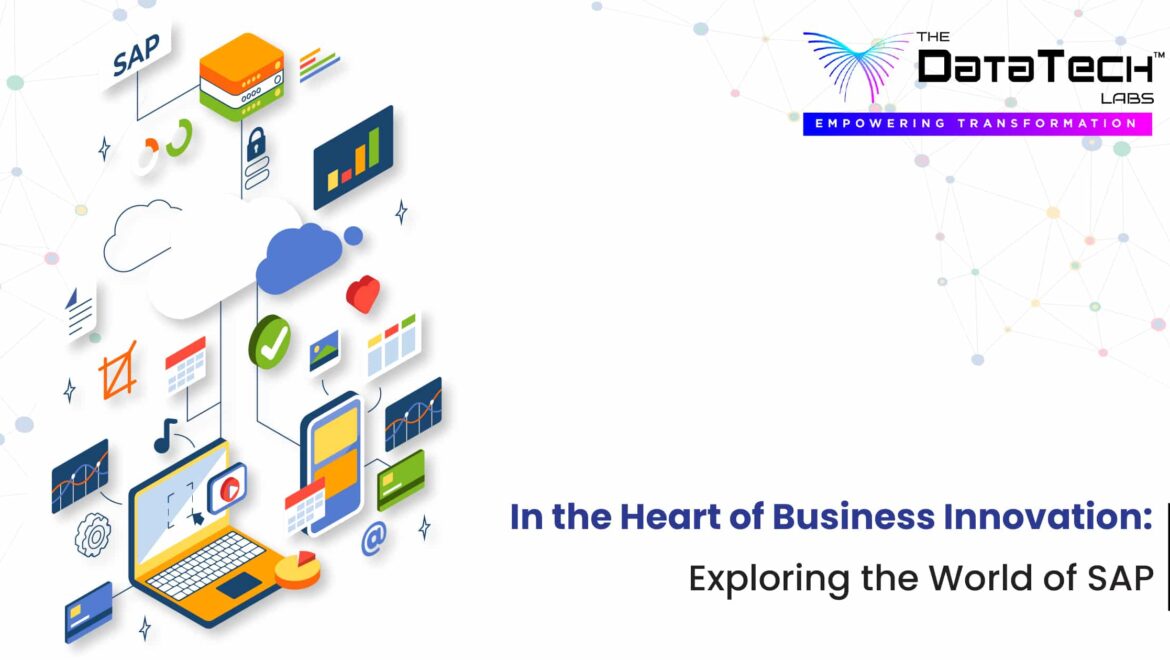Introduction
Understanding SAP
SAP (Systems, Applications, and Products in Data Processing) is a leading enterprise resource planning (ERP) software developed by the German company SAP SE. It integrates core business processes, enabling organizations to manage operations more efficiently and effectively.
Why SAP is Crucial for Business Innovation
SAP’s comprehensive suite of applications supports various business functions, including finance, sales, human resources, and supply chain management. By streamlining processes and providing real-time insights, SAP helps businesses innovate and stay competitive in a rapidly changing market.
The Core Components of SAP
SAP S/4HANA
- In-Memory Database: Accelerates processing speeds and provides real-time analytics.
- Simplified Data Model: Enhances efficiency by reducing data redundancy and complexity.
SAP ERP Modules
- Finance and Controlling (FICO): Manages financial transactions and accounting processes.
- Sales and Distribution (SD): Oversees sales processes and customer distribution.
- Materials Management (MM): Handles procurement and inventory functions.
- Human Capital Management (HCM): Manages employee-related processes.
- Production Planning (PP): Supports manufacturing processes and planning.
SAP Cloud Platform
- Integration Services: Connects on-premise and cloud applications.
- Application Development: Enables custom application creation to meet specific business needs.
Benefits of Implementing SAP
Enhanced Efficiency and Productivity
By automating and integrating business processes, SAP improves operational efficiency and productivity, allowing employees to focus on strategic tasks rather than routine activities.
Real-Time Data and Analytics
SAP provides real-time data and analytics, enabling businesses to make informed decisions quickly. This agility helps organizations respond to market changes and customer needs more effectively.
Scalability and Flexibility
SAP’s scalable solutions grow with your business, ensuring you can adapt to increasing demands and evolving market conditions without needing to overhaul your existing systems.
Improved Customer Experience
With SAP, businesses can offer personalized and efficient customer service, enhancing customer satisfaction and loyalty.
Challenges in Implementing SAP
High Initial Costs
The initial investment for SAP implementation can be substantial. However, the long-term benefits often outweigh the initial expenses, especially in terms of efficiency and productivity gains.
Complexity and Customization
SAP’s comprehensive capabilities can be complex to navigate. Customizing the system to fit specific business needs requires careful planning and skilled resources.
Change Management
Adopting SAP requires significant changes in business processes and employee roles. Effective change management strategies are crucial to ensure a smooth transition and employee buy-in.
Steps to a Successful SAP Implementation
Assessing Business Needs
Identify your business’s specific needs and challenges to determine how SAP can address them. This assessment will guide the selection and customization of SAP modules.
Planning and Strategy
Develop a detailed implementation plan, including timelines, resource allocation, and risk management strategies. Clear objectives and a well-defined strategy are key to successful implementation.
Choosing the Right SAP Partner
Select an experienced SAP implementation partner who understands your industry and business requirements. A reliable partner will provide valuable insights and support throughout the implementation process.
Training and Support
Provide comprehensive training for employees to ensure they are comfortable and proficient with the new system. Ongoing support is essential to address any issues and optimize system performance.
Monitoring and Evaluation
Continuously monitor the implementation progress and evaluate the system’s performance against predefined KPIs. Regular reviews and adjustments ensure the system meets your business goals.
Case Studies of Successful SAP Implementations
Case Study 1: A Global Retailer
A leading retailer implemented SAP to streamline its supply chain and inventory management. The result was a significant reduction in stockouts and excess inventory, leading to improved customer satisfaction and increased profitability.
Case Study 2: A Healthcare Provider
A healthcare organization adopted SAP to manage patient records and billing processes. The implementation led to faster patient service, accurate billing, and improved compliance with healthcare regulations.
Case Study 3: A Manufacturing Giant
A major manufacturing company used SAP to integrate its production planning and quality management systems. This integration enhanced production efficiency, reduced waste, and improved product quality.
Conclusion
The Future of SAP in Business Innovation
As technology continues to evolve, SAP will play a crucial role in driving business innovation. Emerging trends like AI, IoT, and advanced analytics will further enhance SAP’s capabilities, enabling businesses to stay ahead of the curve.
FAQ's
SAP (Systems, Applications, and Products in Data Processing) is an ERP software that integrates various business processes to improve efficiency and provide real-time data and analytics.
SAP helps businesses innovate by streamlining processes, enhancing efficiency, and providing real-time insights that support informed decision-making and agility.
Key components include SAP S/4HANA, various ERP modules like FICO, SD, MM, HCM, and PP, and the SAP Cloud Platform.
SAP allows businesses to offer personalized and efficient customer service, which increases customer satisfaction and loyalty.
Challenges include high initial costs, system complexity, the need for customization, and effective change management.
Successful implementation involves assessing business needs, detailed planning, choosing the right SAP partner, providing comprehensive training, and continuous monitoring and evaluation.
Examples include a global retailer, a healthcare provider, and a manufacturing giant, all of which achieved significant operational improvements and business benefits through SAP.




